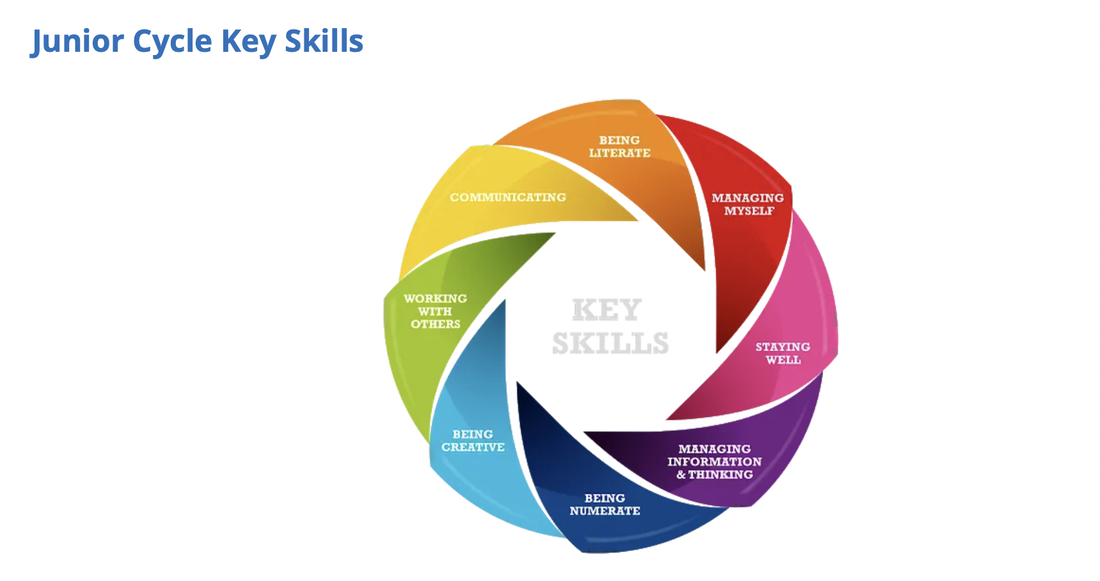Junior Cycle
Junior Cycle:
In St. Vincent's Secondary School our junior cycle education places students at the centre of the educational experience, enabling them to actively participate in their communities and in society, and to be resourceful and confident learners in all aspects and stages of their lives. Junior cycle is inclusive of all students and contributes to equality of opportunity, participation and outcome for all. There are some changes from the previous Junior Certificate and we hope this guide will clear up any questions you may have.
Classroom Based Assessment: (CBAs)
CBAs will be undertaken during a defined time period within normal class contact time and to a national timetable. Students will complete one CBA in second year and one in third year (For most subjects).
Once the second CBA is completed students in third year will complete a written Assessment Task. This task, set by the National Council for Curriculum and Assessment (NCCA), is undertaken during normal class time and will be sent to the State Examinations Commission (SEC) for marking. This Assessment Task will be worth 10% of the overall mark in the case of most subjects. At the end of third year, students will sit the final SEC examination in June. CBAs will be reported on in the Junior Cycle Profile of Achievement using the following descriptors: Exceptional, Above Expectations, In Line with Expectations & Yet to Meet Expectations
Subjects:
Each Subject specification describes the learning that takes place as part of the student's study of a subject in junior cycle. By 2019 all new subject specifications will have been introduced. Students can study a maximum of 10 subjects for the JCPA, and if their school offers short courses they can study 9 subjects plus 2 short courses or 8 subjects plus 4 short courses for certification purposes.
Junior Cycle Grading:
The state examination that students sit in their subject at the end of their junior cycle will also be graded differently. Instead of A, B, C, D, E, F and NG the following descriptors will now be used:
- Distinction 90 to 100 %
- Higher Merit 75 to 89 %
- Merit 55 to 74 %
- Achieved 40 to 54 %
- Partially Achieved 20 to 39 %
- (not graded) 0 to 19 %
Other Areas of Learning:
Students will have the opportunity to engage with a range of other learning experiences as part of their junior cycle programme and these can be recorded on the JCPA. Other learning experiences play a critical role in ensuring that students are provided with a broad and balanced educational experience. These learning experiences could include student engagement in a science fair, a musical performance or a debating competition.
They could also include extracurricular activities, such as: membership of the school student council or school clubs and societies, participation in school sporting activities.
How student achievement at Junior Cycle will be assessed:
Junior cycle students will receive a new Junior Cycle Profile of Achievement (JCPA). The JCPA will reflect a much wider range of your child’s achievements over the three years of junior cycle. The JCPA will report on a number of areas, including:
- Subjects
- Classroom Based Assessments
- Short courses
- Other Areas of Learning


